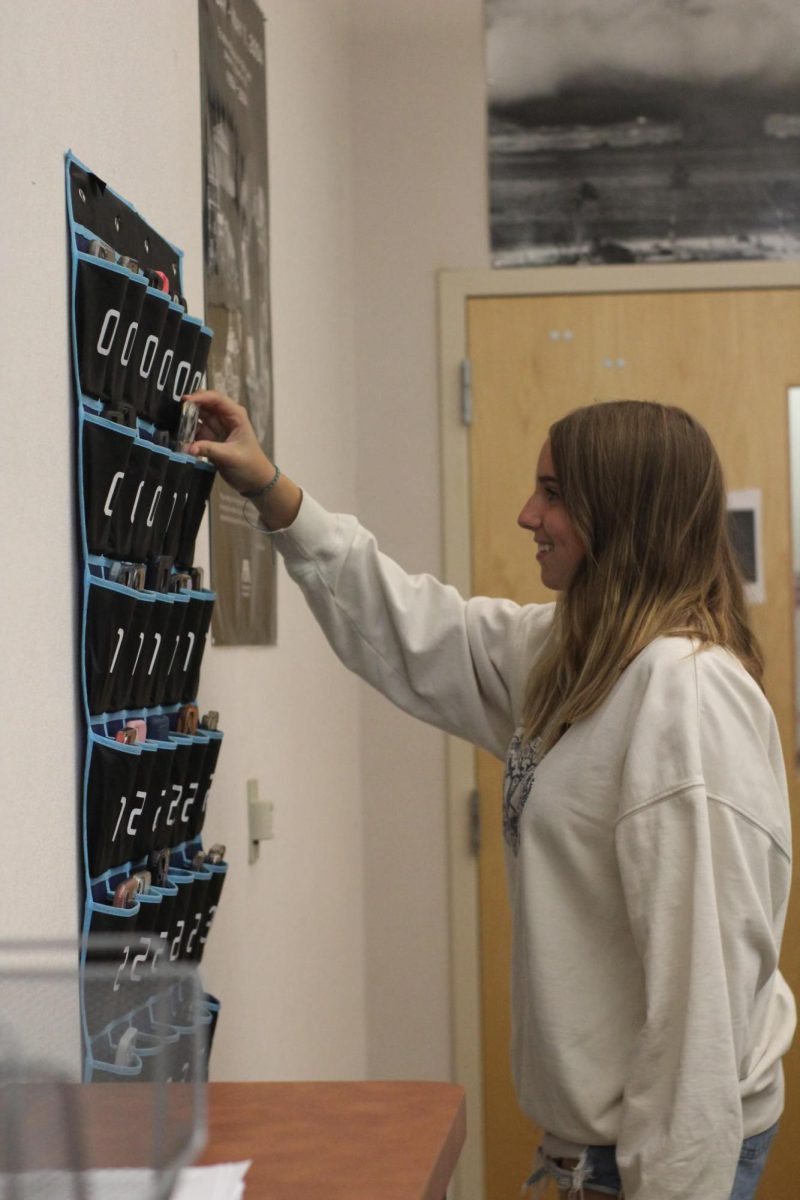The cellphone policy, or mandate issued this year by administration, requires students to hand in their devices at the beginning of every class. Although some teachers have already instituted a phone-free classroom, the remainder are adhering to the rule for the first time in school history.
“ALL classrooms will start class by having students put cell phones in the cubby in accordance with Board Policy 5131: Cell phones/Electronic devices may only be used before school, after school and at lunch,” Principal Scott Collins referenced.
Students who don’t adhere to the policy will have their phone immediately confiscated, and it will have to be picked up by a parent or guardian at the end of the school day. If a phone is confiscated on a Friday, some parents leave it on campus over the weekend as punishment.
Students have had to adapt to this new policy as teachers are required to comply, as with all policies on campus during the school day. Reactions to this new policy, however, have been mixed. Justin Sneed feels as though his privacy and control are being violated.
“My belongings [are] being taken away from me is a lack of control, like being robbed, I guess,” Sneed said.
On the flip side, other students have come to appreciate this new policy.
“I think it’s beneficial because sometimes when you’re not feeling well or you don’t feel productive, your phone can be an excuse or a form of distraction rather than a guide,” Anannya Gairola said.
Students are not the only ones adapting to and forming opinions on this new policy. Teachers are also experiencing the changes a phone-free learning environment creates.
“I think it helps people stay focused and in turn their attention to what they’re supposed to be doing during class, and then they can have time on their phones in between,” World History teacher, Mrs. Natalie Bowen said.
Collins’ reasons behind this policy, however, are in tandon with high expectations to drastically improve students’ well-being. Constant social engagement has brought up mental health issues such as depression and anxiety in teens. Collins hopes to pull students away from the stress of the media with the new policy.
“Our goal is to give students a mental break from their phones and social media while they are in class. This will allow them to better engage in the learning and also build the habits to “unplug” regularly and improve their mental health,” Collins said.
by SARAH CHOI, LYLA GUNDERSON & CARSON NICHOLS









